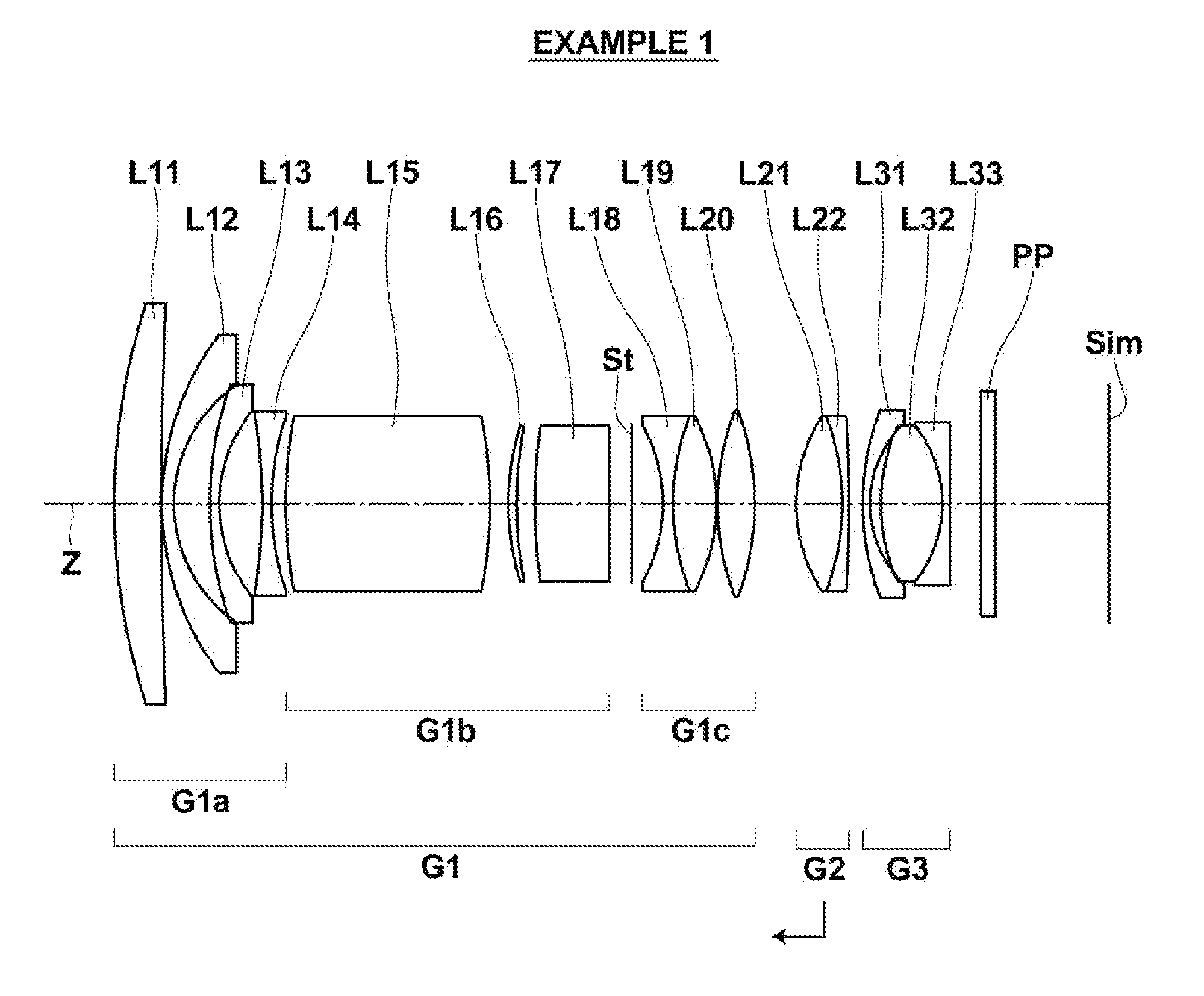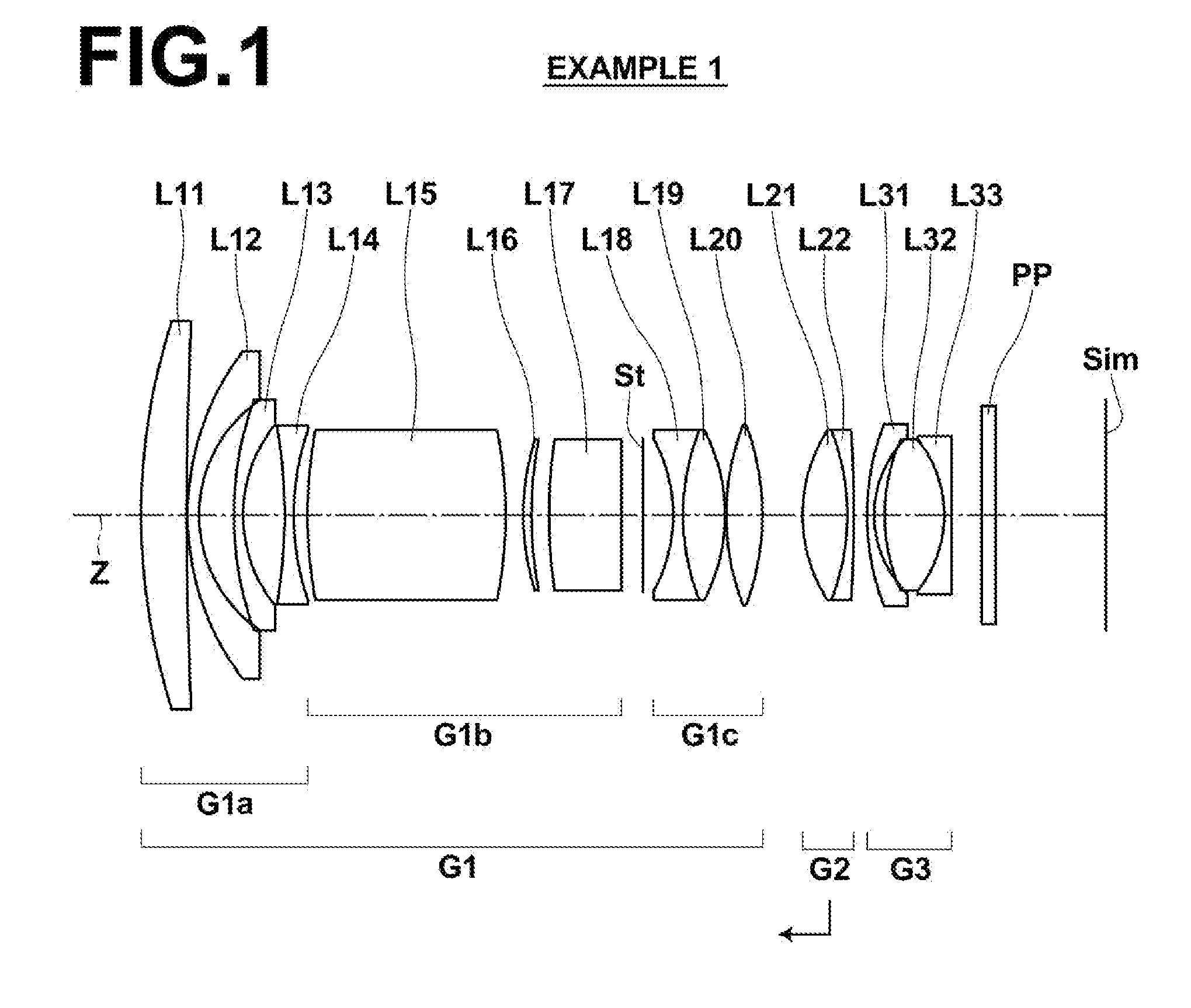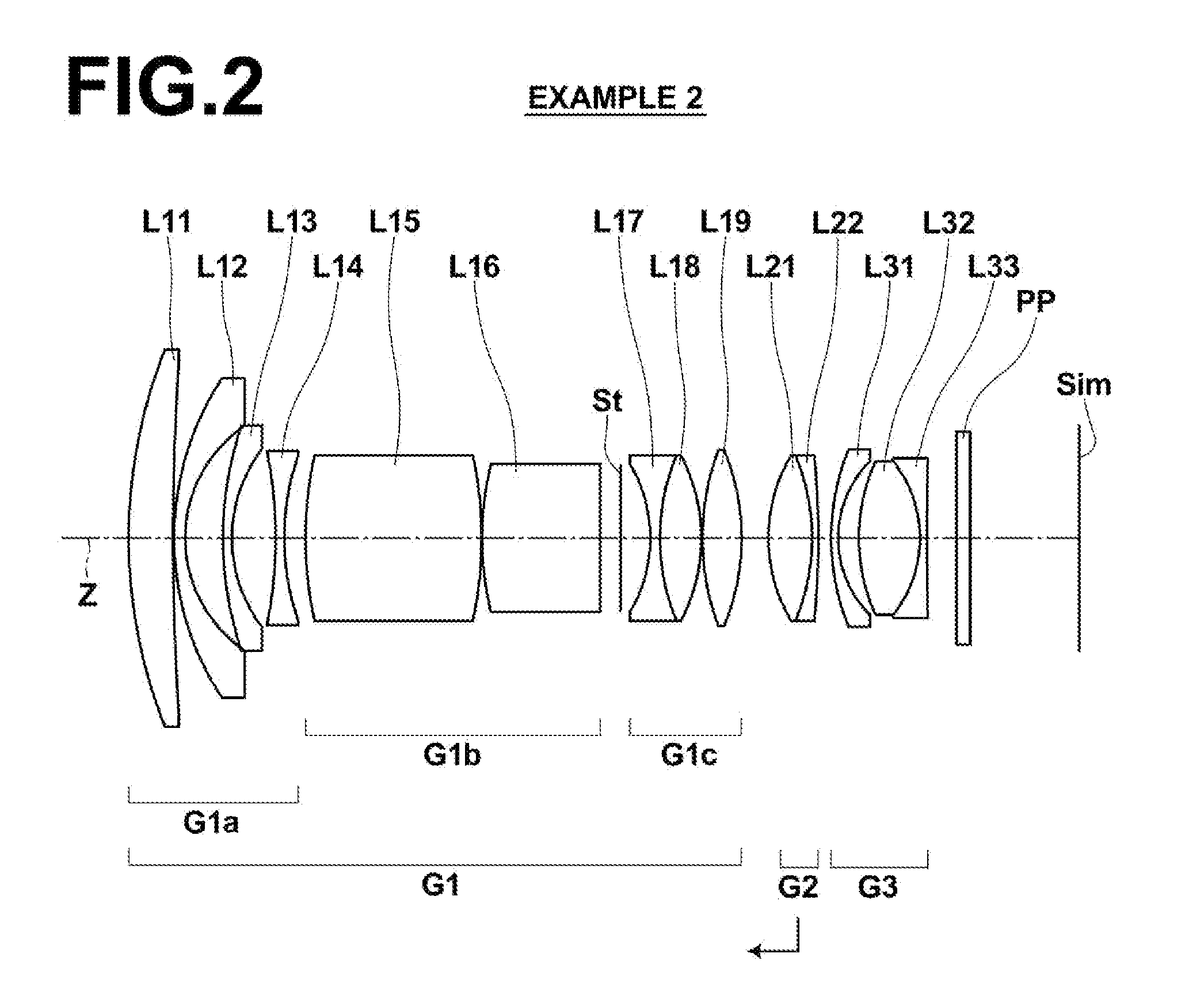Super wide angle lens and imaging apparatus
a wide angle lens and imaging apparatus technology, applied in the field of super wide angle lenses and imaging apparatuses, can solve the problems of heavy focusing group, achieve excellent images, reduce performance and angle of view fluctuations, and accelerate focusing
- Summary
- Abstract
- Description
- Claims
- Application Information
AI Technical Summary
Benefits of technology
Problems solved by technology
Method used
Image
Examples
example 1
[0078]FIG. 1 shows the lens configuration of the super-wide-angle lens of Example 1. The manner in which the drawing is shown has been given above, and accordingly redundant descriptions thereof will be omitted.
[0079]The super-wide-angle lens of Example 1 is schematically configured as shown below. That is, the super-wide-angle lens consists of a first lens group G1 having positive refractive power, a second lens group G2 having positive refractive power, and a third lens group G3 having negative refractive power in this order from the object; the first lens group G1 consists of a first sub lens group G1a having negative refractive power, a second sub lens group G1b having positive refractive power, an aperture stop St, and a third sub lens group G1c having positive refractive power in this order from the object side; the first lens group G1 and the third lens group G3 are fixed while focusing; and the second lens group G2 moves toward the object side while focusing from an object a...
example 2
[0088]FIG. 2 is a lens configuration diagram of the super-wide-angle lens of Example 2. The schematic configuration of the super-wide-angle lens of Example 2 is the same as that of Example 1.
[0089]However, in the super-wide-angle lens of Example 2, the first sub lens group G1a consists of lenses L11 through L14, the second sub lens group G1b consists of lenses L15 and L16, the third sub lens group Glc consists of lenses L17 through L19, the second lens group G2 consists of lenses L21 and L22, and the third lens group G3 consists of lenses L31 through L33.
[0090]Table 2 shows lens data of the super-wide-angle lens of Example 2. A through E of FIG. 6 respectively show aberration diagrams of the super-wide-angle lens of Example 2.
TABLE 2Example 2f = 1.000, FNo. = 2.1, 2ω = 89.8°SiRiDiNdjνdj 14.6221460.40301.5163364.14 225.0295590.0084 32.6304750.10191.8502632.27 41.2337310.3431 53.1943440.08051.8466623.78 61.3269580.3979 7−3.9388200.07951.6204160.29 82.3188240.1910 93.4590061.59991.6889...
example 3
[0091]FIG. 3 is a lens configuration diagram of the super-wide-angle lens of Example 3. The schematic configuration of the super-wide-angle lens of Example 3 is the same as that of Example 1.
[0092]However, in the super-wide-angle lens of Example 3, the first sub lens group G1a consists of lenses L11 through L13, the second sub lens group G1b consists of lenses L14 through L16, the third sub lens group G1c consists of lenses L17 through L19, the second lens group G2 consists of lenses L21 and L22, and the third lens group G3 consists of lenses L31 through L33.
[0093]Table 3 shows lens data of the super-wide-angle lens of Example 3. A through E of FIG. 7 respectively show aberration diagrams of the super-wide-angle lens of Example 3.
TABLE 3Example 3f = 1.000, FNo. = 2.0, 2ω = 91.0°SiRiDiNdjνdj 13.3069680.43151.7880047.37 27.6475960.0084 32.7685250.10141.6204160.29 41.2273720.4262 55.6078100.08001.8466623.78 61.1880960.4781 7−2.7564111.22741.4874970.23 8−2.1857900.0112 91.7753670.07301....
PUM
 Login to View More
Login to View More Abstract
Description
Claims
Application Information
 Login to View More
Login to View More - R&D
- Intellectual Property
- Life Sciences
- Materials
- Tech Scout
- Unparalleled Data Quality
- Higher Quality Content
- 60% Fewer Hallucinations
Browse by: Latest US Patents, China's latest patents, Technical Efficacy Thesaurus, Application Domain, Technology Topic, Popular Technical Reports.
© 2025 PatSnap. All rights reserved.Legal|Privacy policy|Modern Slavery Act Transparency Statement|Sitemap|About US| Contact US: help@patsnap.com



